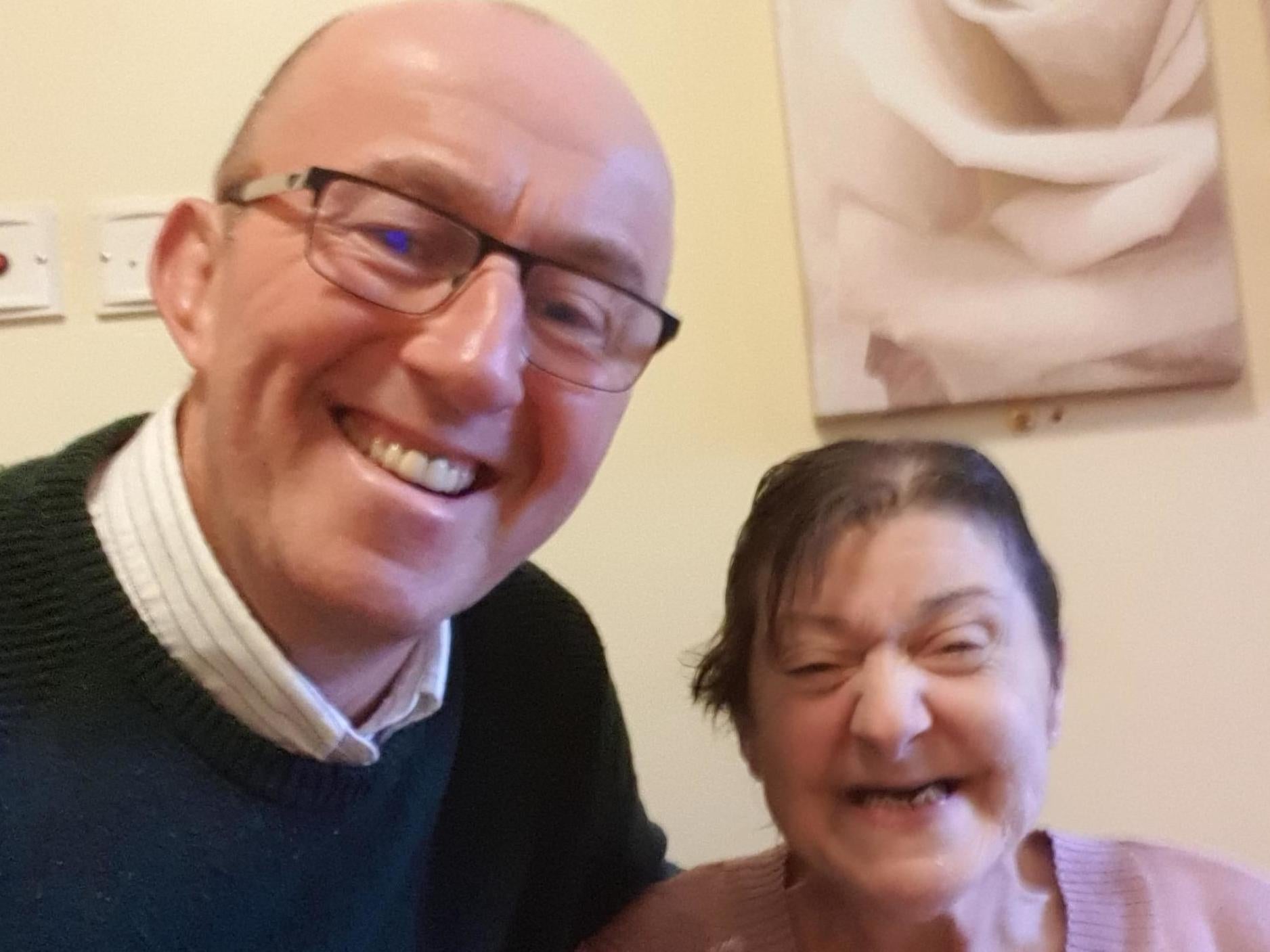‘No one ever tried to contact me’: Former police chief’s anger over ‘do not resuscitate’ order for his sister
Laurence Carr found out about the notice on his sister’s records only when she was discharged to a different hospital

Your support helps us to tell the story
From reproductive rights to climate change to Big Tech, The Independent is on the ground when the story is developing. Whether it's investigating the financials of Elon Musk's pro-Trump PAC or producing our latest documentary, 'The A Word', which shines a light on the American women fighting for reproductive rights, we know how important it is to parse out the facts from the messaging.
At such a critical moment in US history, we need reporters on the ground. Your donation allows us to keep sending journalists to speak to both sides of the story.
The Independent is trusted by Americans across the entire political spectrum. And unlike many other quality news outlets, we choose not to lock Americans out of our reporting and analysis with paywalls. We believe quality journalism should be available to everyone, paid for by those who can afford it.
Your support makes all the difference.Across the country there have been reports of “do not resuscitate” orders being imposed on patients with no consultation, as is their legal right, or after a few minutes on the phone as part of a blanket process.
Laurence Carr, a former detective chief superintendent for Merseyside Police, is still angry over the actions of doctors at Warrington Hospital who imposed an unlawful “do not resuscitate” order on his sister, Maria, aged 64.
She has mental health problems and lacks the capacity to be consulted or make decisions and has been living in a care home for 20 years.
As her main relative, Mr Carr found out about the notice on her records only when she was discharged to a different hospital a week later.
He told The Independent the “do not attempt resuscitation” (DNAR) order was placed on his sister’s records on the day she was admitted.
He said: “Where it asked if the family had been consulted on the form the doctor wrote ‘awaiting’ but that was weeks before and no one mentioned it to me. They have my details. But no one ever tried to contact me.”
Maria had been admitted for a urinary tract infection at the end of March. Although she has diabetes and an infection on her leg her condition was not life threatening.
Mr Carr, 62, added: “My sister has no capacity to effectively be consulted due to her mental illness and would not understand if they did try to explain, so I was furious that I had not been consulted.
“I later learned that the reason given by the hospital for imposing the DNR was ‘multiple comorbidities’. It felt very wrong to me that no one had asked me about my sister and that such a decision could be made without my involvement. I have been left feeling that the DNAR was probably imposed on my sister because of her mental illness and definitely imposed without any knowledge or consideration of her individual circumstances or wishes.”
In a statement, Warrington and Halton Teaching Hospitals Foundation Trust said it was fully aware of the law, which was reflected in its policies and regular training.
It said: “We did not follow our own policy in this case and have the requisite discussions with the family. The template form which was completed in this case indicates that discussion with the family was ‘awaiting’. Regretfully due to human error this did not occur.
“The trust has apologised for any distress caused through our omission to consult during this time. Additionally, we have taken steps to mitigate the possibility of this reoccurring. This is under further investigation.”
But Mr Carr and his sister are not alone. National charity Turning Point said it had learnt of 19 inappropriate DNARs from families, while Learning Disability England said almost one-fifth of its members had reported DNARs placed in people’s medical records without consultation during March and April.
It isn’t only patients with mental health problems or disabilities. Elderly people shielding from the virus or living in care homes have been contacted by GPs aiming to impose DNARs as a blanket measure.
This has been criticised by NHS England, the Care Quality Commission and the health secretary Matt Hancock, who is now set to issue a directive to clinicians on proper use of the orders.
What you need to know about “do not resuscitate” orders
- DNARs are decisions made in advance not to provide someone with CPR.
- A form is completed to record the decision
- “Do not resuscitate” decisions can be made at the request of a patient as part of advance care planning but can also be made by a doctor and do not need the consent of a patient or their family.
- If you are at risk of your heart or breathing stopping, clinicians should speak to you about a “do not resuscitate” decision.
- Patients, their family or carer should be told why the clinicians feel the decision is needed
- Patients should be part of a discussion about their end of life wishes.
- If the patient or family disagrees, the DNAR may still be completed but patients should be offered a second opinion.
- Blanket “do not resuscitate” decisions based on a disability or groups of people are unlawful.
Join our commenting forum
Join thought-provoking conversations, follow other Independent readers and see their replies
Comments